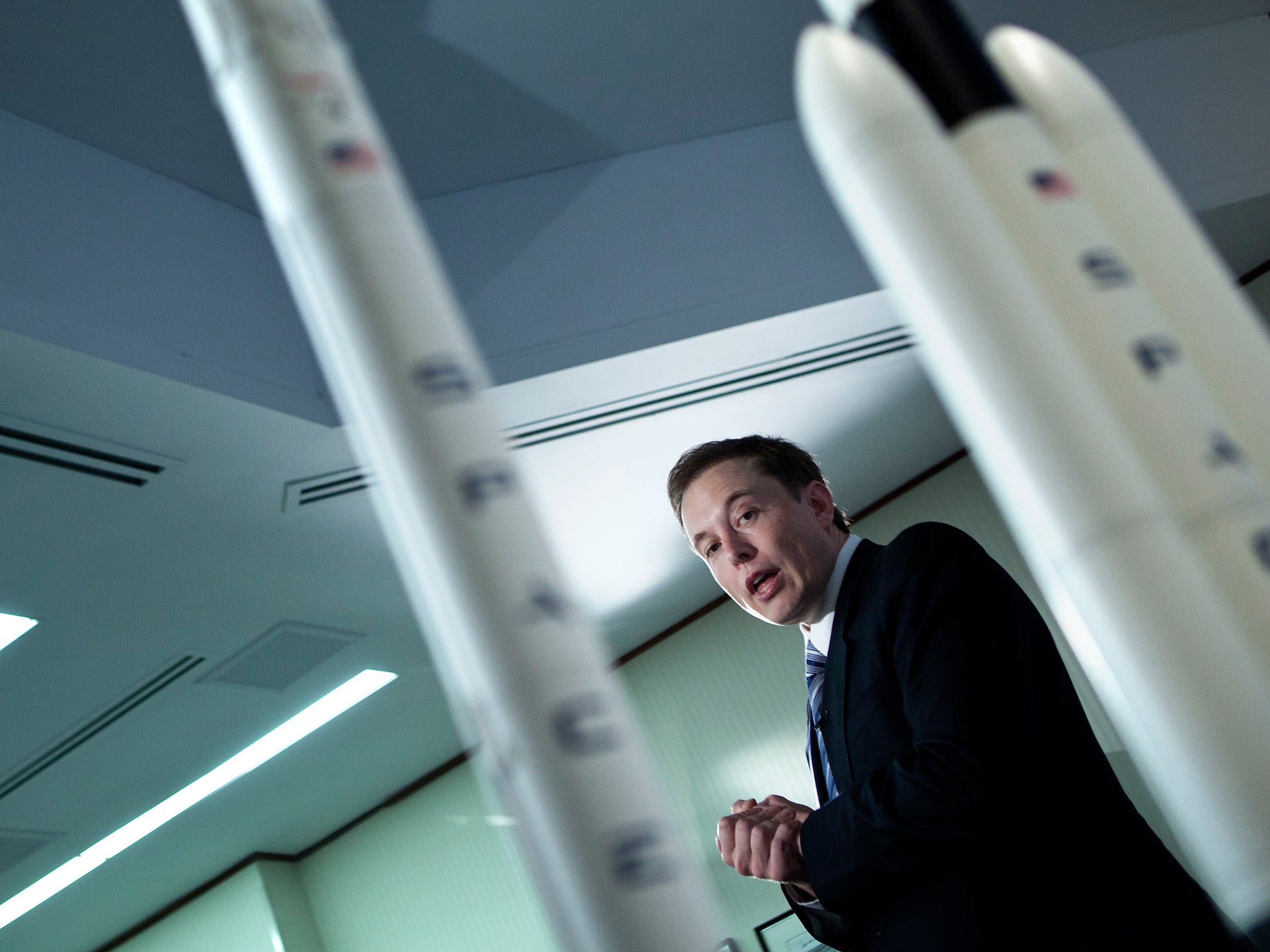Elon Musk Mars mission will send people to die on Red Planet on hope of colonising it
Musk's private space company, SpaceX, intends to stake a claim to Mars and have people living on it within decades, he said

Tech billionaire Elon Musk plans to send people to die on Mars so that his private space company can colonise it, he has said.
The PayPal co-founder's private space company, SpaceX, intends to stake its claim on the Red Planet and have people living on it within decades, he said at an event announcing his plans for our nearest planet.
The trip will make use of the company's Mars Vehicle – a specially designed spacecraft built for sending people to other planets. It can carry 100 people to Mars in just 80 days, he said.
The ship would take off from Earth carried by a booster, which would get it out of our orbit. It would then make the rest of its way on its own, and the rocket itself would come back down to Earth so that it can be re-used – as many as 1,000 times, Mr Musk said.
Once people get to the planet, they will get to work colonising it – a project that will include work to grow things on Mars's harsh surface. And they will also start working on the fuel to bring them back, which Mr Musk hopes can be made out of materials found on Mars, so that it wouldn't have to be carried with them there.
But the first people who make it Mars as part of his mission will probably never be able to use that fuel. It's highly likely that they'll die, he said – and nobody taking part in the mission should be under any illusions otherwise.
"I think the first journeys to Mars will be very dangerous," Mr Musk said in response to an audience question at the event. "The risk of fatality will be very high. There's just no way around it."
As such, all candidates should be "prepared to die" if they want to be a candidate for going, he said.
But Mr Musk said that anyone who does go there, and presumably die, should comfort themselves with the knowledge that they will be doing it as part of a plan to get on the planet as soon as possible.
"This is less about who goes there first," he told the audience. "The thing that really matters is making a self-sustaining civilization on Mars as fast as possible. This is different than Apollo. This is really about minimizing existential risk and having a tremendous sense of adventure.
"It would be an incredible adventure. I think it would be the most inspiring thing that I can possibly imagine. Life needs to be more than just solving problems every day. You need to wake up and be excited about the future, and be inspired, and want to live."
Join our commenting forum
Join thought-provoking conversations, follow other Independent readers and see their replies
1Comments